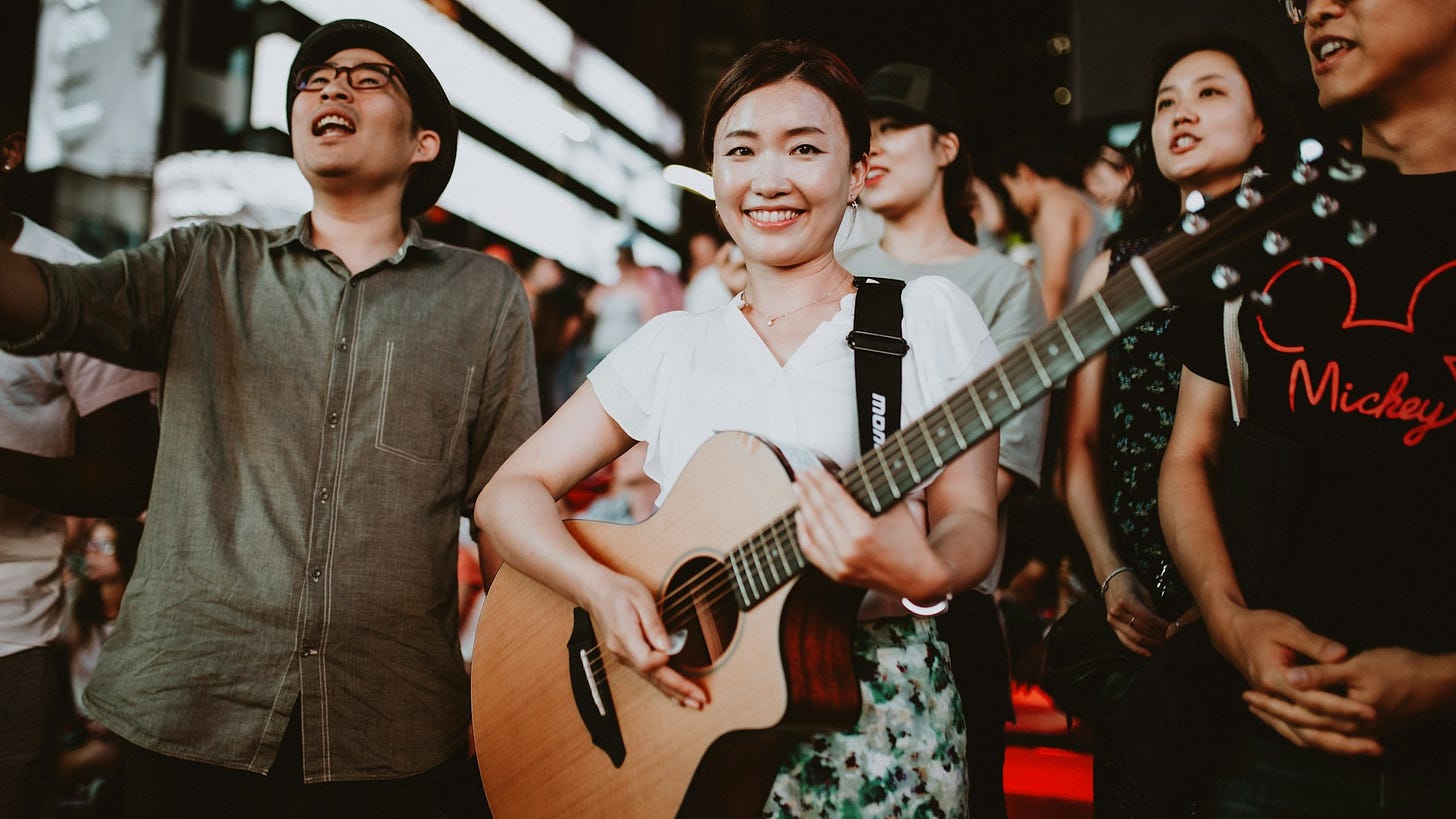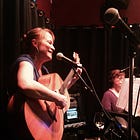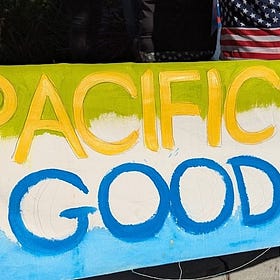Making music together = moving toward the good
Music helps us share what's best about humanity
Making music together = keeping time together
We often talk about “spending” time with friends, but how about keeping time? When we make music together, we literally interact with the time that we’re “spending,” keeping it, beat by beat, as a shared resource. There’s really no other [public] activity that we can do with other humans that allows us to interact in this way: when we play music, our bodies move in sync, our mouths say words together or in response, we are literally joined together in time.
Shared music = shared culture
When I was younger, I toured with the Peninsula Women’s Chorus1 to the Baltics. Our first stop was Latvia. This was soon after the fall of the Soviet Union, and they were poor. But they fed us beautiful food and made beautiful music with us.
I learned an astounding fact: The average Latvian can sing thousands of folk songs from memory. I wondered at the time how many folksongs Americans could sing from memory, and I guessed we might struggle through some verses of a few old chestnuts like “This Land is Your Land.” Now that we’re well into the age of streaming music, I’m guessing the only one we’ve got in common is “Happy Birthday.”
Can you imagine standing in line at a grocery store and knowing that everyone in that line could join in on a song you started to sing?
Music in a room = sound waves created
When we make music in person, we create sound waves that not only join in harmony, they bounce off of our bodies and change as we move. When I sing with you, it’s different than when I sing with someone else. When we sing in a large hall, that song is its own unique self, different from when we sang it in the dry outdoors or in a cramped rehearsal space.
Each time we make music in real time, it’s a new creation. Professional musicians can you tell about their best gigs, and “best” seldom has to do with the size of the crowd. The quality of a musical performance is in the feeling of communal music-making: The musicians feel in sync. The audience feels connected in. Even the tired venue staff are engaged in the sound enveloping them.

Music in community = communication and communion
It’s no wonder that although music can exist without religion, it seems religion cannot exist without music. Music is essential to human communication. Religion without music would be like food without cuisine. It might give us the rules, but it wouldn’t be able to give us the inspiration.
I recently did interviews at our local MLK Day march. Everywhere there was joy, there was positive action, and there was music. We use music to bind ourselves together, to express solidarity, and to affirm our sense of what is good.
EPISODE RELEASE: "A Walk Through Santa Cruz"
This is an unusual episode of The Babblery. First of all, it’s not the usual timing. This episode came out on the first day of February, the first day of Black History Month. I usually release in the second half of the month. Second, it’s very, very local. I live in Santa Cruz County, which perhaps typifies much of coastal California culture. I’d like t…
Making music together = positive action
When I was working on last month’s episode, “Bodies Making Music,” I thought a lot about how it intersected with my current passion: positive action. I’m not saying that protest is futile or that anger and rebellion can’t be useful, but in my observation, protest can only provide the spark for forward movement. The people who do the work provide the actual fuel; they get out into their sphere of influence and work on fixing things, moving us from protest to progress.
Making music together is an assertion of our fundamental humanity. It’s a statement of belief in the future, because music is temporal. Time moves forward inexorably, but when we make music we move in concert with others, riding time in a craft made of tunes.
Making music won’t fix our problems. But it does reaffirm our belief that problems can be fixed. And in times of despair, that’s got to be enough.
“It’s impossible to sustain an effective political movement in a perpetual state of panic.”
Karin Tamerius [Substack - Listen to episode]
Don’t panic: sing a song.
“Music provides and provokes a response, which is universal, ingrained into our evolutionary development, and leads to marked changes in emotions and movement. The therapeutic value of music can be in part explained by its cultural role in facilitating social learning and emotional well-being.”
“Music and the brain: the neuroscience of music and musical appreciation” by Michael Trimble, Dale Hesdorffer
Facilitate your emotional well-being: sing with friends.
Now directed by one of our Visiting Translators to the Tower of Babble, Anne Hege. Listen to her episode, “Bodies Making Music.”







Making music together = moving toward the good ...
Another great article. Thoroughly enjoyed all of it! It's so true, and Music is energy and it touches everybody who is within listening distance. . . And all of that energy is a source that can heal repair, go deep...
and offers a beautiful communal vibration ...
timing..!!
Thank you Suki.
You are on a roll ... 💥💥
Right On Suki.